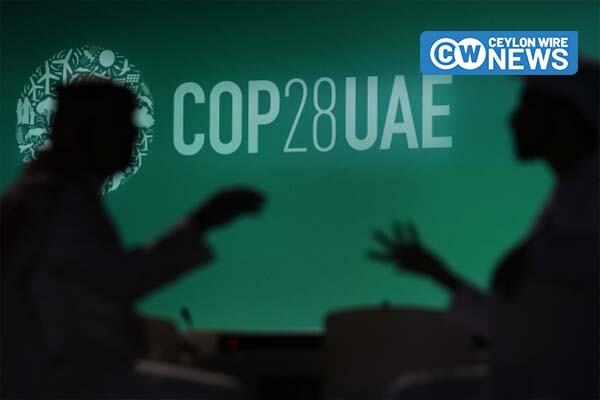In a significant move at the UN climate talks, both countries and prominent oil companies have pledged to make substantial progress in addressing global warming through a comprehensive new energy commitment. Among the notable commitments is Saudi Arabia’s Aramco, along with 50 oil and gas companies vowing to cease contributing to planet-warming gases by 2050, focusing primarily on emissions from production rather than the combustion of fossil fuels.
Approximately 100 countries have also pledged to triple the world’s renewable energy usage by 2030, marking a commendable initiative. However, it’s crucial to note that these commitments lack enforceable penalties for non-compliance, and not all the promises are deemed entirely new. Several oil companies participating in this commitment had previously announced intentions to reduce their emissions to zero.
The pledge allows companies to temporarily increase oil and gas production as long as a reduction is achieved by 2050. It emphasizes that tripling renewable energy is instrumental in eliminating fossil fuels from the global energy system by 2050, aligning with the target set in the 2015 Paris Agreement to limit global warming to 1.5 degrees Celsius.
Addressing the summit, COP28 President Sultan al-Jaber expressed optimism about the pledge, stating it “adds up to more countries and more companies from more sectors than ever before, all aligning with our North Star of 1.5C.” He acknowledged it as a crucial initial step but stressed the need for the entire industry to set even more ambitious decarbonization goals.
UN Secretary-General António Guterres urged the talks to commit to tripling renewables capacity, doubling energy efficiency, and achieving universal access to clean energy by 2030. Stressing the urgency, he emphasized the necessity to phase out fossil fuels to limit the global temperature rise below 1.5 degrees Celsius above pre-industrial levels.
The UAE’s Decarbonisation Charter, spearheaded by oil and gas companies responsible for 40% of global emissions, aims to achieve net-zero status by 2050. This involves ceasing the addition of greenhouse gases into the atmosphere. Additionally, the 50 participating companies pledge to nearly eliminate the release of methane, a potent planet-heating gas, during oil and gas production by 2030.
Critics have raised concerns about the COP28 talks, especially given the UAE’s significant role as a top oil and gas producer and the presidency of Sultan al-Jaber, who also heads the Abu Dhabi National Oil Company (Adnoc). Despite criticisms, more world leaders are actively engaging in the third day of COP28 talks, with Pope Francis endorsing the ecological transition to renewable energy in a speech delivered by Vatican Secretary of State Cardinal Parolin. The Pope stressed the importance of eliminating fossil fuels and fostering lifestyles that are less dependent on them to save the world from environmental challenges.









